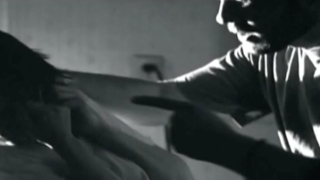
Organizations providing assistance to victims of domestic violence report an increase in cases of physical and verbal abuse since the Stay at Home Order was issued in response to the coronavirus outbreak.
According to the National Coalition Against Domestic Violence, on average 20 people are victims of physical violence by their partner in the country every minute, but that abuse is not only physical.
"Hitting, pulling, pulling hair, pushing, kicking, verbal humiliation [are examples of abuse]," Maria Suarez, a domestic violence therapist at the "About Face" center in Koreatown, said.
Because police stations have closed their reception areas in response to the spread of the coronavirus, victims should contact their nearest police department over the phone in case they need a temporary restraining order or an emergency protective order.
Suarez says that since the Stay at Home Order began, calls for help have shot up 20 percent.
"[If] they live in small places and the family is large, there’s a bit of stress," Suarez said.
Police statistics reveal that in the city of Los Angeles, as of March 21, aggravated assault crimes, including those of domestic violence, have increased more than 4 percent.
U.S. & World
"If the police are not helping them because of [coronavirus], they can take refuge with a family member or with a friend," Suarez suggested.
Alexandra Monsibáez, from the Union Rescue Mission, affirms that in the last two weeks more families have come to the mission’s shelter.
"We accept families. We never say no to them. They can always come here to be safe. We have two quarantine areas, so we are not denying help to anyone, even if they have coronavirus symptoms," she said.
The Los Angeles County Department of Public Social Services also offers services such as food, shelter, clothing, emergency transportation, health services, counseling and legal services.
Suarez added that there is also a VAWA visa available for victims of domestic violence. If the victim is not a permanent resident, they can still receive financial assistance from the Calworks program if they have submitted a VAWA petition or a U Visa to regularize their immigration status. They can also receive assistance if they are related to a legal resident, or if they’re the widow of a U.S. citizen.
For more information on these services, people are encouraged to call the Los Angeles County Department of Public Social Services at 1-800-978-3600, 24 hours a day, seven days a week.



